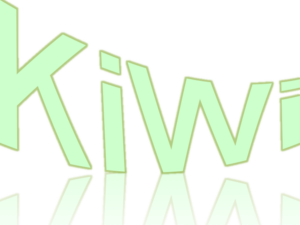| (70 intermediate revisions by 9 users not shown) | |||
| Line 1: | Line 1: | ||
| − | + | __NOTOC__ | |
| + | = <center> [[Image:KiwiLogoCrop_Old Kiwi.png|300px]] <br>A multidimensional, multimedia, self-adaptive, collective learning tool.= | ||
| − | ''' | + | ==='''Kiwi was version 1.0 of a new student-driven learning tool developed by [http://www.ece.purdue.edu/~mboutin Prof. Mimi Boutin]. It retired in August 2008 when we moved to a new server and software. Kiwi was created and developed by Dennis Snell, William Ehlhardt, Deen King-Smith, Stephen Rudolph and many other students. Thanks to all for their efforts and see you on [http://kiwi.ecn.purdue.edu Rhea]! '''=== |
| − | + | = = | |
| − | + | ||
| − | + | ||
| − | + | ||
| + | '''About Kiwi ''' | ||
| − | + | * [[Kiwi:About|What is kiwi?]] | |
| − | * What is | + | |
| − | + | * [[Howtoparticipate_Old Kiwi|How to participate]] | |
| + | * [https://engineering.purdue.edu/~kiwi/Index.html The Ratite Project Page] | ||
| − | * | + | * [[BehindKiwiProject_Old Kiwi| Who is behind all this?]] |
| − | + | * [[IdeasForInstructors_Old Kiwi| I am a Purdue instructor, how can I use Kiwi in my class?]] | |
| + | |||
| + | * [[KiwiVideo_Old Kiwi| Kiwi Instructional Video]] | ||
| + | |||
| + | |||
| + | '''Courses''' | ||
| + | |||
| + | Please do not create any more courses here. Instead, email mcwalker at purdue to get your own course wiki on [http://kiwi.ecn.purdue.edu Rhea]. | ||
| + | * [[ECE301:ECE301_Old Kiwi|ECE301]] | ||
| + | * [[ECE302:ECE302_Old Kiwi|ECE302]] | ||
| + | * [[ECE438:ECE438_Old Kiwi|ECE438]] | ||
| + | * [[ECE462:ECE462_Old Kiwi|ECE462]] | ||
| + | * [[ECE637:ECE637_Old Kiwi|ECE637]] | ||
| + | * [[ECE662:ECE662_Old Kiwi|ECE662]] | ||
| + | * [[ECE490W:ECE490W_Old Kiwi|ECE490W]] | ||
| + | * [[ECE602:ECE602_Old Kiwi| ECE602 ]] | ||
| + | * [[MA553:MA553_Old Kiwi| MA553 ]] | ||
| + | * [[MA544:MA544_Old Kiwi| MA544]] | ||
| + | |||
| + | |||
| + | '''Others''' | ||
| + | |||
| + | * Articles requiring cleanup: [[:Category:Cleanup_Old Kiwi]] | ||
| + | * [[QE:HKN QE|HKN QE]] | ||
| + | * [http://www.stdout.org/~winston/latex/ LaTeX Cheat Sheet] | ||
| + | * [[How to get through math grad school at Purdue_Old Kiwi]] | ||
Latest revision as of 10:59, 29 August 2008

A multidimensional, multimedia, self-adaptive, collective learning tool.

A multidimensional, multimedia, self-adaptive, collective learning tool.
Kiwi was version 1.0 of a new student-driven learning tool developed by Prof. Mimi Boutin. It retired in August 2008 when we moved to a new server and software. Kiwi was created and developed by Dennis Snell, William Ehlhardt, Deen King-Smith, Stephen Rudolph and many other students. Thanks to all for their efforts and see you on Rhea!
About Kiwi
Courses
Please do not create any more courses here. Instead, email mcwalker at purdue to get your own course wiki on Rhea.
Others
- Articles requiring cleanup: Category:Cleanup_Old Kiwi
- HKN QE
- LaTeX Cheat Sheet
- How to get through math grad school at Purdue_Old Kiwi

